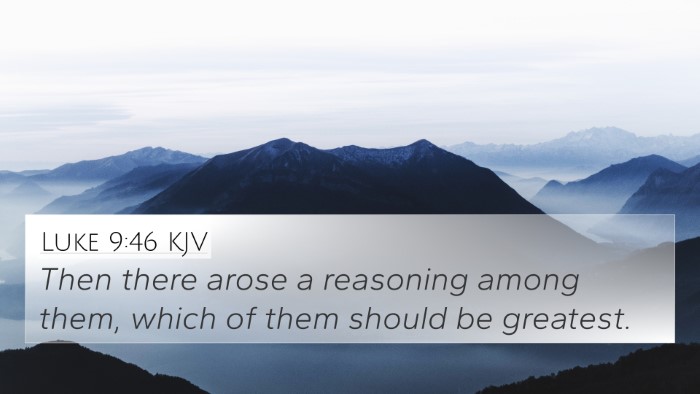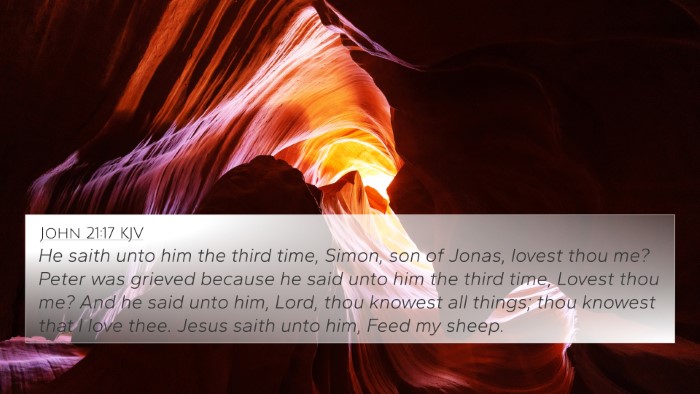Understanding Mark 9:33
This analysis delves into the profound meaning of Mark 9:33, which states, "And he came to Capernaum: and being in the house he asked them, What was it that ye disputed among yourselves by the way?" This verse highlights a moment of teaching and reflection within the context of Jesus' ministry.
In this passage, Jesus demonstrates his awareness of human discussions and disputes, even when they are held in private. The scene takes place after Jesus has performed miracles and taught extensively, depicting a critical moment for his disciples.
Commentary Insights
-
Matthew Henry's Commentary:
Matthew Henry emphasizes the importance of humility and the need to address the nature of the disciples' disputes. He notes that the disagreement likely revolved around which of them was the greatest (as elaborated in the parallel accounts). This self-promotion contrasts sharply with the values of the Kingdom of God that Jesus teaches.
-
Albert Barnes' Notes:
Albert Barnes points out that Jesus' inquiry reveals his desire to teach the disciples about humility and servanthood. By questioning them, Jesus provides an opportunity for self-examination. Barnes notes that the desire for greatness is a recurring theme throughout the Gospels, indicative of humanity's struggle with pride.
-
Adam Clarke’s Commentary:
Adam Clarke elaborates on the context of Capernaum and suggests that the disciples' dispute was a result of their misunderstanding of Jesus' mission. Clarke ties this to the broader theme of discipleship and the call to follow Jesus' example of servant leadership.
Thematic Connections
Mark 9:33 serves as a pivotal moment that sets up subsequent teachings about humility (Mark 9:34-37) and servanthood (Mark 10:43-45). These verses are part of a larger narrative that underscores the nature of true greatness in God's eyes.
Cross-References
- Matthew 18:1-4: A similar inquiry about who is the greatest in the Kingdom, emphasizing childlike humility.
- Luke 9:46-48: Another account of the dispute among the disciples about greatness, with Jesus instructing them on receiving the humble.
- Mark 10:43-45: Jesus teaches that the greatest among them must be a servant.
- James 4:10: "Humble yourselves before the Lord, and he will lift you up."
- Philippians 2:3-4: An encouragement to consider others better than oneself, paralleling the lesson on humility.
- Romans 12:3: A reminder not to think more highly of oneself than one ought, aligning with the theme of humility.
- 1 Peter 5:5: "Clothe yourselves, all of you, with humility toward one another," a direct correlation to the essence of the dispute among disciples.
Inter-Biblical Dialogue
Through cross-referencing biblical texts, we gain deeper insights into the nature of discipleship, the concept of greatness, and the radical teaching of Jesus. The connections between these verses exemplify the need for believers to understand the context and implications of their faith.
Jesus' teachings challenge conventional perceptions of success and importance, urging followers to embrace a servant-hearted approach, a message continually echoed throughout the New Testament.
Conclusion
Mark 9:33 presents a significant moment for reflection on the nature of leadership and the heart of discipleship. The insights derived from Mark 9:33, together with the cross-referenced verses, underscore the importance of humility, servant leadership, and the often-unraveled human tendency towards pride. Embracing these teachings leads to a deeper understanding of living a life aligned with the values of God's kingdom.











